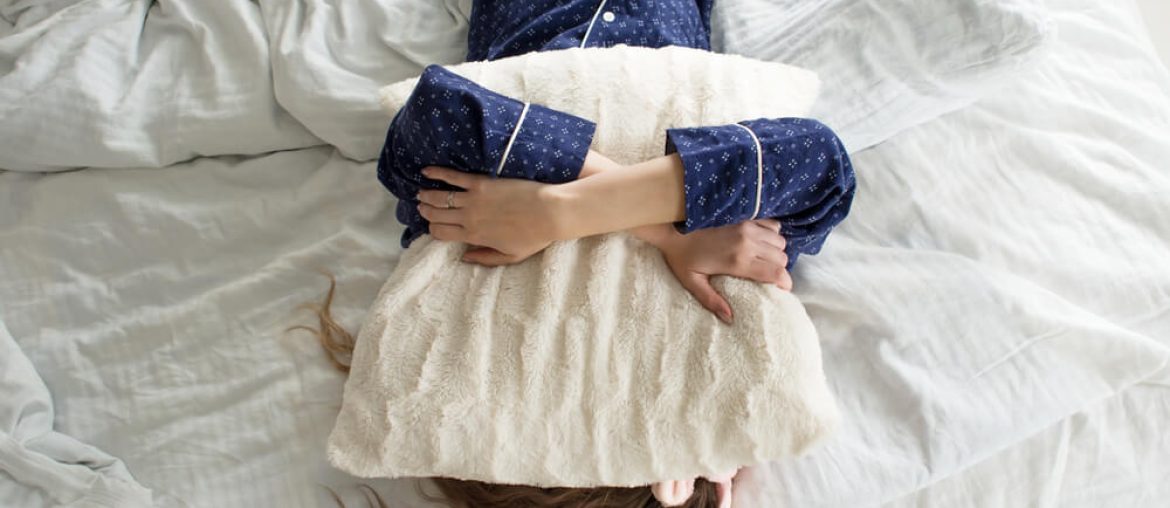Everyone has trouble sleeping once in a while. However, some people have more frequent trouble falling asleep or staying asleep to the point where it affects their normal daily life.
What are the Symptoms of Insomnia?
The symptoms of insomnia are:
- Trouble falling asleep
- Waking up a lot during the night
- Waking up too early in the morning and not being able to get back to sleep
- Not feeling rested when you wake up
- Sleep problems that last at least one month
Insomnia can affect a person even when they’re not sleeping. For example, feeling tired during the day because of lack of sleep can make it hard to go to school or work, drive a car, play sports, or do activities with family and friends.
In addition to feeling tired or exhausted, a person might:
- Have a hard time concentrating or paying attention
- Feel grouchy or irritable
- Be less motivated and make more mistakes at school or work
- Drive less safely
- Have more aches and pains and not feel as well physically
What Causes Insomnia?
Short-term (or acute) insomnia lasts for less than 3 months, and usually happens when something in your life is really bothering you. For example, a person with insomnia might find it hard to fall asleep or to stay asleep if they have a lot of things on their mind or are adjusting to a new environment.
Stressful things that might interfere with sleep include:
- Moving to a new home, school, or job
- Getting into arguments with family members or friends
- Having big tests or projects coming up
- Anything else in your life that makes you worry a lot
Other times, things that might not seem very stressful can still disrupt your sleep, such as:
- Consuming caffeine, nicotine, or alcohol
- Withdrawing from caffeine, nicotine, or alcohol
- Traveling to a different time zone (jet lag)
- Working the night shift
- Traveling to high altitude
Long-term insomnia causes trouble sleeping for months or even years. Long-term insomnia can be caused by:
- Poor “sleep hygiene,” or bad habits related to sleeping
- Worry about sleep-this can lead to a cycle of lying in bed worrying about why you are not able to sleep, which makes falling asleep even harder
- Genetics-people in some families have a harder time with sleep than others
- Certain medications that affect sleep
- Alcohol and illegal drugs
- Some medical conditions or illnesses can make sleeping difficult
What Can I Do to Improve My Sleep?
Here are some suggestions for ways to improve your “sleep hygiene,” or your habits related to sleep:
During the daytime:
- Exercise regularly, but not within 3 hours of bedtime
- Avoid caffeine (found in coffee, energy drinks, some sodas, and chocolate) after lunch time
- Avoid napping during the daytime unless you’re sick
- Don’t use your bed for anything other than sleeping (for example, don’t watch TV in bed or use your bed to do schoolwork)
When you’re getting ready for bed:
- Make sure your bedroom is dark, quiet, and a comfortable temperature
- Have a small snack so you’re not hungry or too full
- Avoid upsetting conversations
- Don’t watch TV, play video games, or use your laptop or phone, because these things stimulate your brain and can make it harder to fall asleep
- Have a pre-sleep routine, such as taking a warm bath, reading, or meditating just before going to bed
Going to sleep:
- Go to sleep at the same time every night (including weekends)
- Try to relax
- Make sure you are in a comfortable position
- If you don’t fall asleep within 15-20 minutes, get up and do a quiet activity in a different room like reading or listening to calm music until you feel tired enough to try to sleep again
In the morning:
- Wake up at the same time each morning-even on weekends (using weekends as times to sleep in will make it hard to fall asleep when the weekdays return)
- Expose yourself to natural light immediately after you wake up by opening the shades or turning on the lights to help your body adjust to a good schedule
What Should I Do if I Think I Might Have Insomnia?
If you’re having trouble sleeping, tell your health care provider (HCP). He or she will likely ask you questions about your sleeping habits, such as:
- What kinds of things do you do before going to bed? (Watching TV, texting, playing video games, etc.)
- What time do you go to bed each night?
- How long does it take you to fall asleep?
- Do you ever wake up during the night?
- How many hours of sleep do you usually get?
- Do you feel rested in the morning?
- Do you drink any caffeine?
- Do you smoke?
- Is there anything in your life that stresses you out?
- Do you take any medications, vitamins, or supplements?
- Do you exercise?
Based on your answers to these questions, your HCP will likely be able to tell if you have insomnia, and what can be done to help you. Your HCP may recommend relaxation techniques, other things you can change about your sleep routine, or may prescribe a medication to help you sleep better. Although you may be tempted to try over-the-counter sleep medicine, NEVER do this before talking with your health care provider.


















